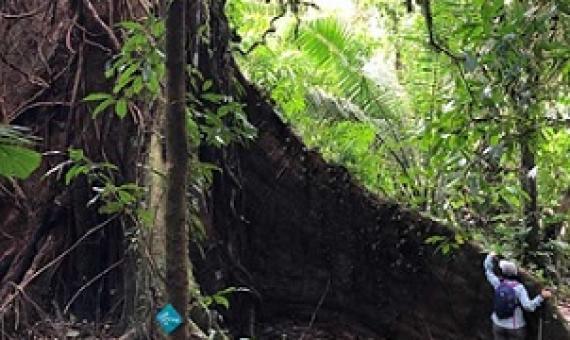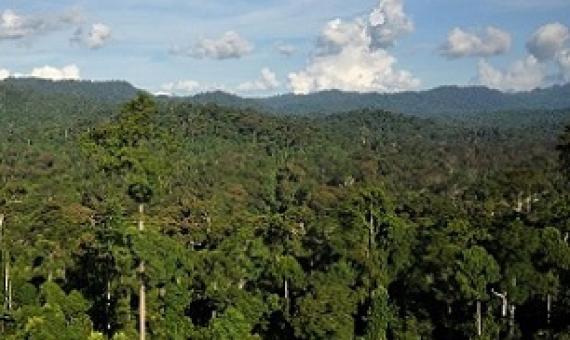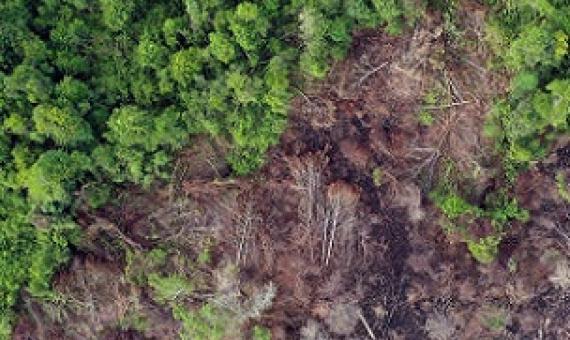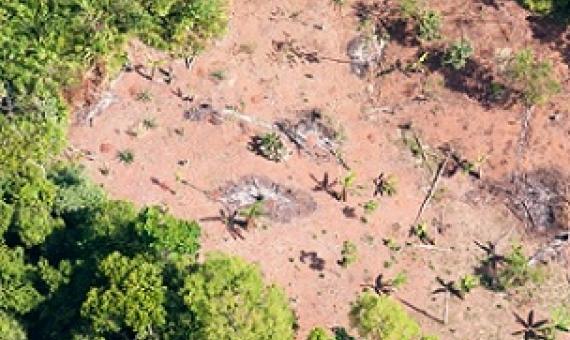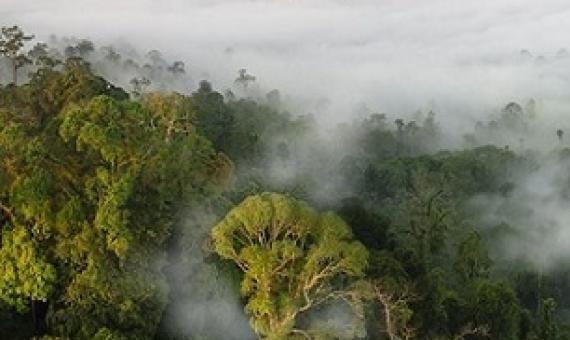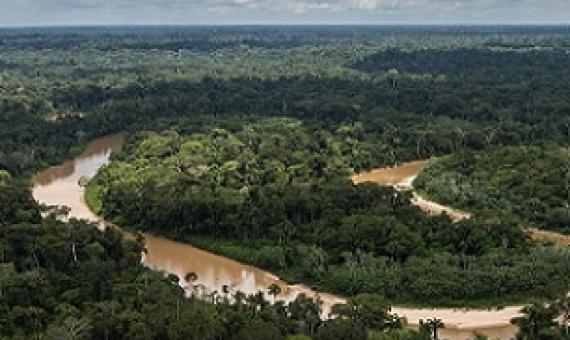Tropical forests often harbor hundreds of species of trees in a square mile, but scientists often struggle to understand how such a diversity of species can coexist.
Tropical forests provide a variety of ecosystem services that are also of great global relevance, such as climate regulation and the provision of habitat for animals and plants. However, climate change can impair these services, which also has serious economic consequences.
Tropical deforestation causes large reductions in observed precipitation
Tropical forests play a critical role in the hydrological cycle and can influence local and regional precipitation. Previous work has assessed the impacts of tropical deforestation on precipitation, but these efforts have been largely limited to case studies. A wider analysis of interactions between deforestation and precipitation— and especially how any such interactions might vary across spatial scales—is lacking. Here we show reduced precipitation over deforested regions across the tropics.
Deforestation is resulting in reduced rainfall across large parts of the tropics, according to new research.
The Policy Implications of the Dasgupta Review: Land Use Change and Biodiversity
The “Dasgupta Review” of the economics of biodiversity (Dasgupta 2021) identifies many factors that threaten the ecological sustainability of our economies. This article examines how two policy failures - the underpricing and underfunding of nature – influence global land use change and terrestrial biodiversity loss. If natural areas are priced too cheaply, then converting them to agriculture, forestry and other land uses is less costly than protecting or preserving habitats. Underfunding nature further reduces the incentives for conservation and restoration.
Tropical forests are converted at an alarming rate through deforestation. A new study, published in Science, shows that regrowing tropical forests recover surprisingly fast on abandoned land.
Tropical forests as key sites of the “Anthropocene”: Past and present perspectives
Tropical forests are on the front line of climate change and human sustainability challenges, being key environments in discussions of the “Anthropocene” and some of the most threatened land-based habitats on the face of the Earth. However, while it has been acknowledged that 21st-century anthropogenic alterations to tropical forests have the potential to set off major earth systems feedbacks on regional to global scales, there has been less discussion on how past human activities may have had similar impacts.
Tropical forests are some of the most threatened ecosystems on Earth, largely due to recent human activities.
Humid tropical forests, vital in global efforts to limit rising temperatures, are under threat as a result of changes in land use and climate.
The finding comes out of an effort to map where vegetation is emitting and soaking up carbon dioxide from the atmosphere...The research found that over the course of those two decades, living woody plants were responsible for more than 80% of the sources and sinks on land, with soil, leaf litter,

